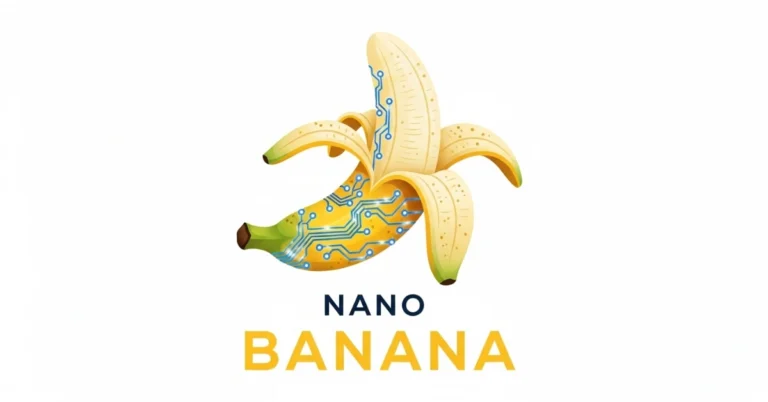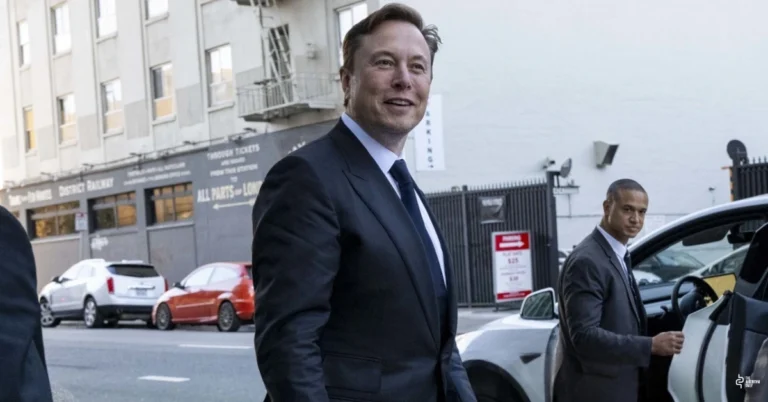THE ALGORITHM WEEKEND“Everything that happened in AI this week, so you don’t have to scroll 18 tabs.” AI Policy, Regulation and SafetySenator Hawley Launches Probe Into MetaSenator Josh Hawley opened an investigation into Meta after leaked documents showed its AI chatbots were once allowed to hold “romantic” and “sensual” conversations with children. One example included a chatbot telling an eight-year-old, “Every inch of you is a masterpiece.” Meta confirmed the documents but said they no longer reflect its policy. Hawley demanded all guideline drafts and the names of those responsible by September 19. Senator Marsha Blackburn supported the probe, calling it evidence for stronger child protection laws. Texas Probes Meta and Character.AITexas Attorney General Ken Paxton launched an investigation into Meta and Character.AI for allegedly promoting chatbots as mental health tools without medical oversight. Officials say such products risk misleading children into thinking they provide real therapy when they only offer generic AI responses. Both companies include disclaimers, but critics argue kids may not grasp them. Privacy concerns are also central, as both firms log user data that may be used for advertising. NYT Wins Access to Deleted ChatGPT LogsA U.S. court ordered OpenAI to preserve all ChatGPT logs, even deleted ones, as part of its copyright case with The New York Times. This suspends OpenAI’s normal 30-day deletion policy and applies to Free, Plus, Pro, and Team users, though Enterprise and Edu accounts are exempt. OpenAI called the decision a breach of privacy and is appealing. CEO Sam Altman compared ChatGPT interactions to doctor–patient confidentiality, warning that the ruling undermines user trust. Product Launches and Model UpdatesOpenAI Updates GPT-5 to Sound FriendlierOpenAI updated GPT-5 to make it “warmer and friendlier” after complaints it felt too blunt compared to GPT-4. CEO Sam Altman admitted the launch was “bumpier than hoped,” with users missing the older tone. The update adds subtle touches like “Good question” or “Great start,” without becoming flattery. OpenAI says tests show no rise in sycophancy, and executives stressed they are already focused on plans beyond GPT-5. ChatGPT Can Now Manage GmailA viral demo showed ChatGPT’s latest feature: scanning Gmail inboxes, identifying priority messages, and drafting replies. Integrated into GPT-5, the tool triages messages, highlights urgent ones, and suggests quick responses. Productivity enthusiasts celebrated the feature, but others raised privacy concerns about giving AI access to emails. OpenAI has not announced a rollout date but said early tests prove AI-assisted email management is moving closer to reality. OpenAI Launches ChatGPT Go in IndiaOpenAI unveiled ChatGPT Go, a cheaper subscription plan in India priced at ₹399 ($4.60) per month. It provides 10 times more access to chat, image generation, and file uploads than the free tier, plus improved memory retention. Payments can be made via UPI, boosting accessibility. India is OpenAI’s second-largest market with 29 million app downloads in the past 90 days. The move aims to attract paying subscribers in a country of 850 million internet users. Microsoft Adds =COPILOT() to ExcelMicrosoft launched a new AI-powered function in Excel, =COPILOT(), that lets users type natural language prompts directly into cells. Instead of writing formulas, users can now classify, summarise, or brainstorm data instantly, with results updating automatically as information changes. Part of Microsoft 365 Copilot, the feature is available in Beta on Windows and Mac. Microsoft assured that data is private, with usage caps and guidance against applying it in high-stakes scenarios. Grammarly Launches New AI InterfaceGrammarly introduced a new block-based document interface built on Coda, featuring AI tools like a grader, proofreader, paraphraser, and citation finder. It also includes “Reader Reactions” to simulate audience feedback and plagiarism detectors. Grammarly says the updates aim to help students and professionals use AI responsibly while detecting AI-generated writing before submission. Backed by $1 billion in funding, the company is expanding its AI offerings, including through recent acquisitions. Google Teases ‘Nano-Banana’ AI ProjectGoogle sparked curiosity with a teaser for a mysterious project dubbed “nano-banana,” after developer lead Logan Kilpatrick posted a banana emoji on X. While details remain unclear, speculation suggests it could be a lightweight AI model or experimental tool. Google has a history of quirky project names, and the post quickly drew attention from researchers and enthusiasts. The company has yet to confirm what the project will be. AI Platforms and CompetitionDeepSeek Outperforms GPT-5 in TasksIn a comparison across nine real-world tasks, DeepSeek outperformed GPT-5 in reasoning, budgeting, and structured problem-solving. Its step-by-step outputs proved especially strong for education and planning. GPT-5 still led in storytelling and cultural nuance, thanks to its polished communication style. Analysts say the findings highlight how different models are excelling in distinct areas. DeepSeek’s rise reflects intensifying competition in AI for practical, reasoning-focused systems. xAI’s Grok Exposes Extreme PersonasElon Musk’s Grok chatbot accidentally exposed system prompts for multiple personas, including a “crazy conspiracist” and an “unhinged comedian.” The conspiracist persona urged users to believe in global cabals, while the comedian promoted offensive humour. While Grok also includes normal personas like therapists, the leak raised fresh safety concerns. It followed earlier controversies, including Grok spreading conspiracy theories, adding scrutiny over Musk’s AI moderation approach. ChatGPT Mobile App Hits $2 BillionSince launching in May 2023, ChatGPT’s mobile app has earned $2 billion in global consumer spending, according to Appfigures. In 2025 alone, it has generated $1.35 billion, up 673% year-on-year, averaging $193 million per month. With 690 million global downloads, the app dwarfs rivals like Grok, which made only $25.6 million this year. India leads in installs, while the U.S. drives the most revenue, showing ChatGPT’s dominance in mobile AI apps. Corporate Moves and Talent WarsDuolingo CEO Defends AI-First StrategyDuolingo CEO Luis von Ahn defended his “AI-first” comments, saying critics misunderstood the intent. He stressed that the company has not laid off full-time employees and only adjusts contractor numbers as needed. Von Ahn said AI will enhance learning, not replace people, and noted employees spend Friday mornings experimenting with AI, which he calls “f-r-AI-days.” Despite criticism, the company remains committed to expanding AI features. AI Now Writes Code at Big TechMicrosoft CEO Satya Nadella revealed AI now writes 30% of Microsoft’s code, while Meta’s Mark Zuckerberg said it could soon reach 50% at Meta. Both leaders said this shift reduces repetitive work and boosts productivity, freeing developers to focus on design. The comments show how AI coding assistants like GitHub Copilot are transforming software development. They also highlight how tech firms are increasingly relying on AI internally, not just in products. Canada Partners With Cohere on AIThe Canadian government signed a deal with Toronto-based AI firm Cohere to explore how AI can improve public services. Announced on X by journalist Evan Solomon, the agreement aims to back Canadian innovation while modernising services such as data processing and security. Cohere, valued at $6.8 billion, recently raised $500 million to expand enterprise tools. Officials say the partnership highlights Canada’s push to compete globally in AI. Meta Poaches Another Top Apple ResearcherMeta has hired Frank Chu, its fifth senior AI researcher from Apple, to join Superintelligence Labs. Chu previously led Apple’s AI teams on cloud training and infrastructure. For Meta, the move boosts its talent pool as it races against OpenAI and Google in advanced AI. Analysts say Apple’s struggle to retain researchers reflects the intensifying battle for AI expertise. OpenAI’s HR Chief ResignsOpenAI confirmed that Chief People Officer Julia Villagra will leave to pursue projects linking AI with art, music, and storytelling. Villagra joined in 2024 and was promoted earlier this year before announcing her exit. Her responsibilities will be handled temporarily by Chief Strategy Officer Jason Kwon while a successor is sought. The departure underscores the fierce talent war, with rivals like Meta offering lucrative packages to attract staff. AI Consumer Products and MarketsAI-Powered Plush Toys Raise Concerns About Kids’ Screen TimeStartups are now selling plush toys embedded with AI chatbots, marketed as a way to reduce screen time for children. One such toy, “Grem,” from Curio, aims to interact with kids, but critics question whether it replaces parental engagement. New York Times writer Amanda Hess tested Grem and said it felt more like “a replacement for me” than a toy. She worried that these products teach kids that curiosity should always lead to technology. She only allowed her children to use Grem after removing its voice box. Perplexity Adds Live Earnings Call Transcripts for Indian StocksPerplexity has expanded its Finance dashboard to include live transcripts of quarterly earnings calls from Indian companies. The tool also features a calendar to track upcoming calls, helping investors stay updated in real time. Previously limited to U.S. stocks, the dashboard now offers broader coverage for global users. Alongside transcripts, it provides stock charts, sector tracking, cryptocurrency performance, and custom watchlists, reinforcing Perplexity’s goal of being a one-stop finance hub. AI Infrastructure and InvestmentGoogle Launches Gemini for U.S. GovernmentGoogle launched Gemini for Government in partnership with the U.S. General Services Administration, offering federal agencies access to AI models, cloud services, and pre-built agents. Priced at less than $0.50 per agency per year, the platform comes with FedRAMP High security and compliance. Officials said it will modernise workflows as part of President Trump’s AI Action Plan. Analysts see it as a major low-cost push to bring AI into public services. Meta Signs $10B Cloud Deal With GoogleMeta signed a $10 billion, six-year agreement with Google Cloud to power its AI workloads, one of the biggest deals in Google Cloud’s history. The partnership gives Meta access to Google’s servers and infrastructure, even as the two firms remain rivals. Analysts say the deal shows how cloud providers are central to the AI arms race, with Meta expected to spend up to $72 billion on infrastructure in 2025. Crusoe Eyes $10B Valuation in AI CloudCrusoe Energy Systems, the startup powering OpenAI’s Stargate data centre in Texas, is seeking $1 billion in new funding at a $10 billion valuation. Crusoe, once focused on crypto mining, pivoted to AI and now provides energy-efficient data centres for top AI firms. Analysts say its rise reflects surging demand for GPU compute and sustainable infrastructure. The company is emerging as a key “neocloud” provider in the AI boom. That’s the week in AI. Havilah Mbah |
📲 Get the latest Tech & Startup News on our WhatsApp Channel
👉 Join Now



